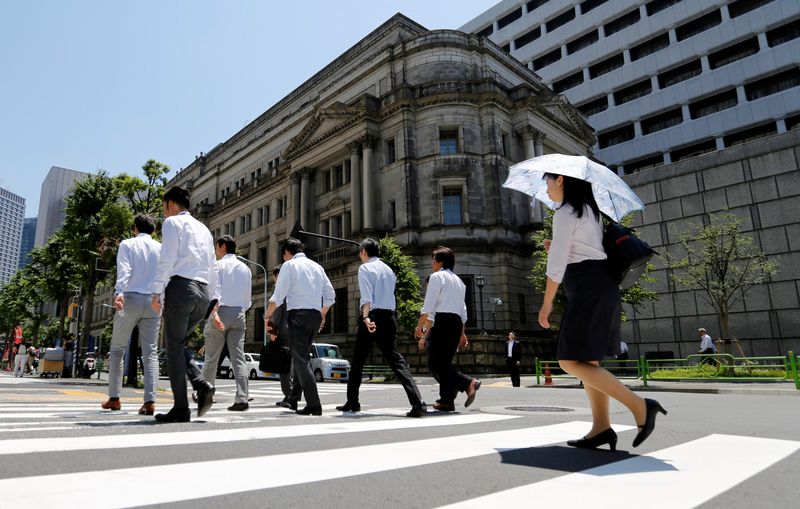By Leika Kihara
TOKYO (Reuters) – Japan’s weighted median inflation rate, which is closely watched as an indicator on whether price rises are broadening, hit a record 1.1% in October in a sign of heightening inflationary pressure from rising raw material and labour costs.
The data will likely keep alive market expectations the Bank of Japan (BOJ) may tweak its ultra-low interest rates if wages pick up in tandem with inflation next year.
The weighted median is the inflation rate of items at the middle of the price changes, or around the 50th percentile point of the distribution, and is scrutinised by the BOJ for clues on how broadly prices are rising.
The 1.1% year-on-year rise in the weighted median inflation was the fastest pace on record and followed a 0.5% increase in September, BOJ data showed on Tuesday.
Japan’s weighted median inflation rate hovered around zero for the past two decades, as firms held off on price hikes for fear of scaring away cost-sensitive consumers.
It began creeping up this year reflecting a wave of price hikes mainly for food and daily necessities, as companies began passing on the surging cost of raw material imports blamed on the war in Ukraine and the yen’s sharp declines.
Unlike the consumer price index (CPI) which is swayed by fuel and energy costs, the weighted median inflation rate is useful to trace how broadly prices are rising.
As soaring fuel and commodity prices muddle the inflation picture, BOJ policymakers have been paying increasing attention to the weighted median rate to determine whether recent rises in inflation would be sustained after the one-off boost from soaring fuel costs peter out.
In a research note published in 2015, the BOJ said the weighted median inflation rate would rise more only if inflation expectations heighten, and people begin to assume that prices will continue to rise sustainably.
Japan’s core consumer price index (CPI), which is released by the government and includes the impact of fuel costs, rose 3.6% in October from a year earlier, marking the fastest increase in 40 years.
BOJ Governor Haruhiko Kuroda has repeatedly said the rise in core CPI will likely slow back below the central bank’s 2% target next year as the effect of fuel price hikes dissipate.
(Reporting by Leika Kihara; Editing by Shri Navaratnam)
